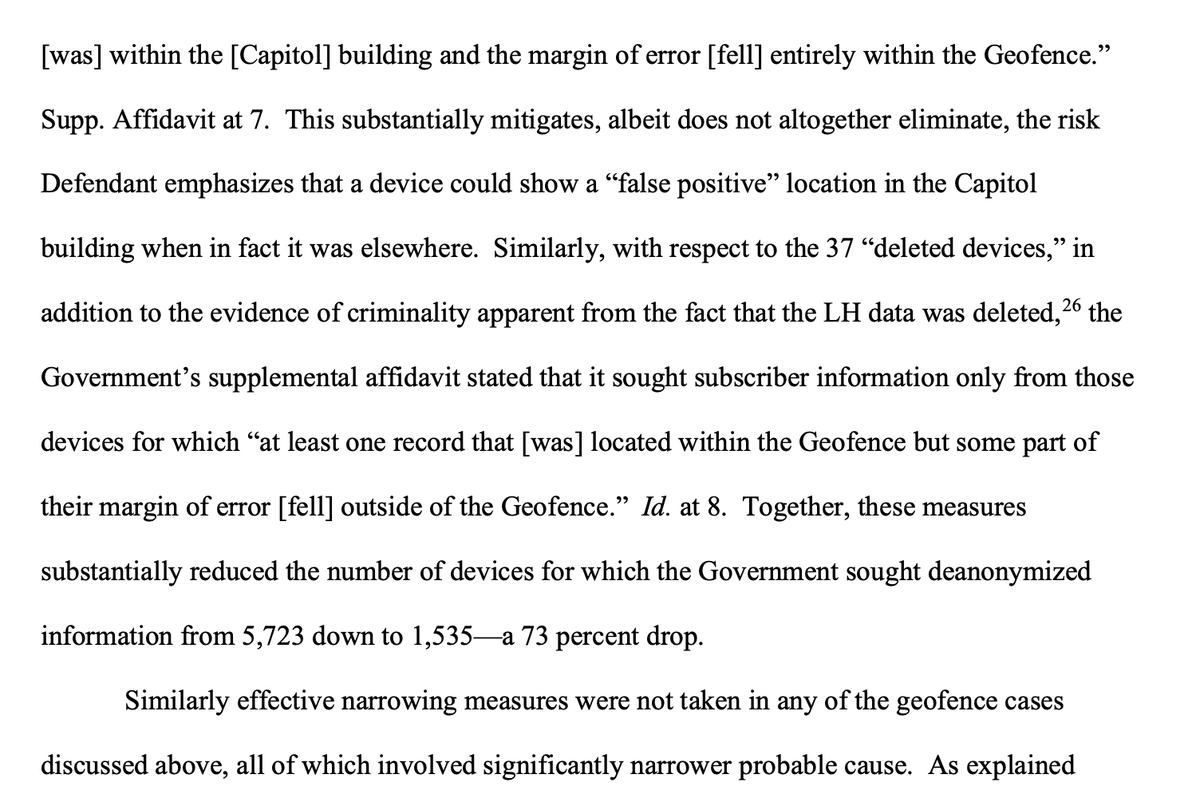
D.D.C. assumes w/o deciding that Google geofence is a "search," holds that J6 warrant for logged in accounts at capitol from 2pm to 6:30pm on 1/6/21 was sufficiently particular.
A few thoughts below. #N
ecf.dcd.uscourts.gov/cgi-bin/show_p…
A few thoughts below. #N
ecf.dcd.uscourts.gov/cgi-bin/show_p…

As I understand the opinion, there are two parts: 1st, was the geofence sufficiently narrow that there was PC to think the accounts picked up would be evidence? And here, there was. 



2nd, defendant makes a claim that the warrant vested too much discretionary power in the government that gets labeled a claim about particularity. I don't know what that argument has to do with warrant particularity, but in any event, the court rejects the claim. 

I confess I find these geofence warrant cases odd; the kind of analysis they are conducting seems quirky, and not directly about the traditional kinds of warrant legality. But then I am skeptical that they involve searches at all, too, an issue that hasn't been reached.
• • •
Missing some Tweet in this thread? You can try to
force a refresh












